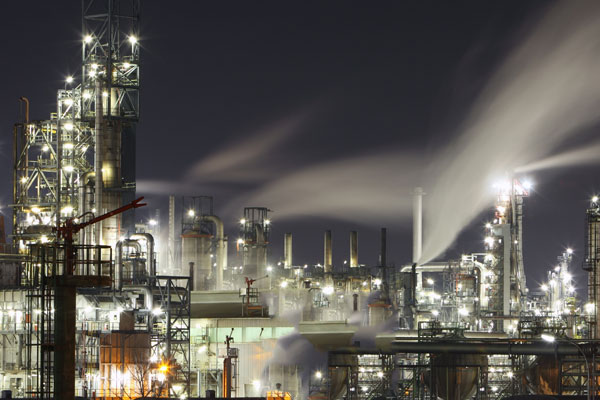Compressed Air systems consume a substantial amount of energy in the Indian industry. Air compressors are utilized in various sectors to satisfy process requirements, power pneumatic tools and equipment, and power instruments. However, only 10 – 30% of the energy reaches the end-use point, with the remaining 70 – 90% of the significance of the primary mover being transformed to useless thermal energy and, to a lesser amount, wasted in the form of friction, abuse, and noise.
Compressed air is commonly employed in the industrial industry and is sometimes called the “fourth utility” at many sites. From a tiny machine shop to a massive pulp and paper mill, almost every industrial unit has a compressed air system. The compressed air system is so critical that the facility cannot function without it in many circumstances.
Air compressors consume more power than any other form of equipment in many industrial sites. As a result, compressed air systems can have severe inefficiencies. However, energy savings from system enhancements can be enormous, resulting in tens of thousands or even hundreds of thousands of dollars in potential yearly savings, depending on usage. A well-managed compressed air system may save energy, minimize maintenance, reduce downtime, boost production productivity, and improve product quality.
Summer, believe it or not, is just around the corner! Air compressors, like air conditioners, require routine cleaning and maintenance. This implies that, in addition to enjoying the beach and soaking up the rays, it’s time to start preparing your facilities for the summer heat. Of course, we frequently worry about preparing our facilities for the winter months, but it’s also necessary to think about compressor maintenance before the summer heat arrives. With hotter and more humid weather on the approach, compressor loads may rapidly reach peak levels, causing energy consumption to climb. Not sure where to start? Don’t worry! We recommend starting with the three R’s: Review, Repair, and Renew.
Reviewing of Compressed Air Systems
From condensation to overheating, your air compressor system will have to work harder than ever to produce the same amount of compressed air as before. As a result, evaluating your compressor performance and compressor installation is crucial to ensure that your compressor operates efficiently and effectively during the summer season.
To begin, just listening for hissing noises or scrubbing suspected leaks with soapy water may be done in-house. A hissing sound would typically indicate a leak, and bubbles would form if a leak were touched with soapy water. However, both procedures are time demanding and usually inconclusive. Furthermore, neither approach will allow you to determine the size of these breaches. This is crucial in determining the severity of the leak and, as a result, the sequence in which leaks should be addressed.
Repairing of the Compressed Air Systems:
The increased strain on your compressor system means that repairs should be an essential part of your summer prep work. Check for leaks in the pipe connections and fix them. Check the connections and replace leaks in high-pressure drop connections. Instantly repair as many leaks as possible. Thoroughly Check for Oil Leaks on Compressors. Repair or consult a trusted service advisor to make repairs. Check and Test all Condensate Drains.
Confirm that the drain valves operate correctly and close all the way. If the valve does not work, drain condensate from the receiver tank. Keep a check on all the oil-water separators. Make sure they are running and draining correctly. If not, repair or replace it as soon as possible. Check all the filters, including inlet filters, oil filters/separators and line filters. Replace as needed.
Renewing of the Compressed Air Systems
It is critical to realize that leaks will occur regardless of how modern or fresh your compressed air pipe is. Therefore, leak detection and repair should be on repeat,’ i.e. an ongoing operation, to reduce leaks and their related energy costs to a minimum. The simplest method to guarantee that this remains an ongoing activity is to chat with your compressed air service provider about making it a regular component of your compressed air maintenance program.
Maintaining your equipment as a top priority can ensure minimal downtime and wasted energy. Still, it’s also critical to refresh your old equipment and ensure that it’s functioning at peak efficiency. Ensure you clean all your intercoolers, aftercoolers, water coolers, and refrigerated dryer condensers. Check operation and performance of the Desiccant Dryers. Consider taking a core sample and sending it for analysis to see if the desiccant is still performing. Make sure dewpoint sensors are calibrated every year. Update the controls and keep a check for firmware updates as required. Consider updating to the newest technology for networking capability, automated scheduling, and remote control capability.



